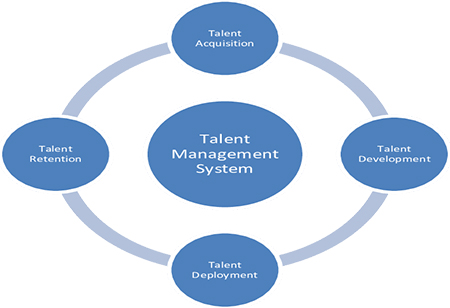Talent Acquisition Versus Talent Management
By Aveek Pal Chaudhuri
 A company might find the right talent for a particular job, but it might not be able to keep the talent because of not having a proper balance between talent acquisition and talent management. Therefore, the human resource and development teams from various companies have articulated some measures and styles for securing the talents for best outcomes. For any company, which is at the verge of succeeding to newer heights, it is an essential measure for them to take and practice, to ensure that employee retention happens optimally. Companies need to make sure that it provides the right training and development programmes to keep employees interested at work.
A company might find the right talent for a particular job, but it might not be able to keep the talent because of not having a proper balance between talent acquisition and talent management. Therefore, the human resource and development teams from various companies have articulated some measures and styles for securing the talents for best outcomes. For any company, which is at the verge of succeeding to newer heights, it is an essential measure for them to take and practice, to ensure that employee retention happens optimally. Companies need to make sure that it provides the right training and development programmes to keep employees interested at work.
A new employee might lack in one or more skills, but certainly it is not the point for which a company should terminate it. What the company needs to do is to scrutinize thoroughly in which segments it is falling or what skills can be instilled to transform it to a better performer. “Skill gap analysis” is one of the ways to evaluate such situations and identify the skills that could be instilled, which also meets the company demands. However, if the company finds that skill gap cannot be filled through in-house training; then there is another way to fix this is by hiring a fresh talent if budget agrees to.
What Is Talent Acquisition?
Talent acquisition refers to catch attention of skillful personnel to meet a company’s business demands. It needs some planning. Giving lucrative perks and benefits to the right candidate is one of it. This also builds a strong employer brand in the market. While taking this measure, a company also attracts a chain of future applicants.
Talent acquisition does not end here. It circulates through the path of good relationship maintenance with the past candidates who applied but could not secure the job. This creates a good impression of the company and it creates another path through which it can give future chances to these candidates.
What Is Talent Management?
Talent management, on the other hand, means engaging employees for unstipulated revenue generation. Just to add more numbers in the revenue, companies use motivating measures for better employee performance. As a result, the employees also realize their potential is not limited and they can take their work to whichever position they want. Talent management teams strategically develop learning plans for employees and update them with latest industrial skills. They onboard new hires, conduct skill gap-filling sessions and schedule training programmes. Talent management teams design a company’s organizational structure by defining employee responsibilities.
Talent Acquisition Processes
In addition, talent management teams chart out plans to meet future hiring needs. They have the capabilities to identify the right talents, talents with latent potential. Working with the hiring teams, talent management teams also analyze the number of employees needed for performance improvement. They are regarded as the best scouting members for talent acquisition for a company. As a part of their scouting task, talent management teams participate in different organizational events to increase their networks. With the scrupulous usage of social media sites, nowadays, talent acquisition has become an easy task. Using Boolean Google searches or any other method, talent management teams are more confident in hiring the right talent, again and again for the right job. Other websites, especially Glassdoor, helps companies in the process.
Talent Management Processes
It has become a tough task for companies to retain an employee due to severe competition. They do not struggle in acquiring the talent, but they find it very difficult to keep it. Employee benefit programmes, various remunerations, food coupons and travel allowances are some of the measures taken by big firms to retain employees, along with salary increase. Other initiatives that help them in employee retention include entertaining workplaces. This helps in reducing the mental detention of the employees due to overloaded works at times. The role of an HR is also important in talent management as they are the ones who design the employee benefit and training programmes in collaboration with talent management teams.
Talent Acquisition Vs Talent Management
At first talent acquisition happens, followed by talent management. As discussed already, talent acquisition is the core step of a hiring process by identifying the right candidate and nurturing them then onwards with skills needed for works and giving them challenging tasks is talent management. Talent acquisition and talent management - both are essential and needs importance for growth of a company. The best usage happens when talent management and talent acquisition techniques are intercepted with HR strategies. In other words, talent acquisition means hiring potential leaders and later converting them to performing leaders is what talent management is defined through. Talent acquisition and talent management, these two are the nucleus of a company’s brand as services and products that it provides depend thoroughly on it.




